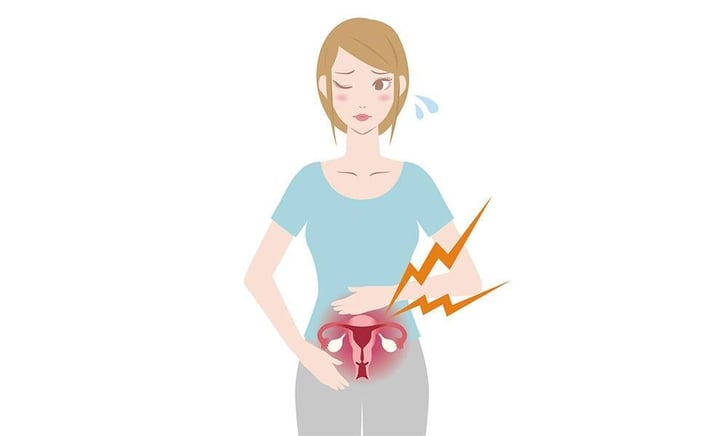Endometriosis What You Need To Know!
Endometriosis is a benign chronic disorders that mostly causes distressing and debilitating symptoms such as pelvic pain, painful periods, painful intercourse, and infertility. The endometrium is the normal lining of the uterine cavity.

Endometriosis is a benign chronic disorders that mostly causes distressing and debilitating symptoms such as pelvic pain, painful periods, painful intercourse, and infertility. The endometrium is the normal lining of the uterine cavity. Its function is to accept a fertilized egg. If pregnancy does not occur, the normal lining of the endometrium is shed during normal menstruation and the cycle starts again. Endometriosis is when the normal endometrium grows in abnormal locations such as the fallopian tubes, ovaries, and surface of the uterus. Endometriosis can occur in other places such as the bowel, lung, and vagina but this is much rarer.
Since the endometrium is estrogen dependent and there is bleeding if no pregnancy occurs, endometriosis will bleed with menstruation. This blood is irritating and can cause the constellation of symptoms such as pain and scarring which can lead to infertility. Some women are asymptomatic. Since it is dependent on ovarian steroids, it is a disease of women in the active reproductive period, ages 25-35 years. The cause of endometriosis has not been definitively established. Some hypotheses are that endometrial cells shed through the fallopian tubes into the abdominal cavity, implant on the fallopian tubes and other sites. Another hypothesis is that the endometrial cells are transported by blood or the lymphatic vessels to more distant sites. A third hypothesis is that the endometrium grows from undifferentiated cells at the different sites.
What Are The Symptoms Of Endometriosis?
Classic symptoms includes painful periods (dysmenorrheal, pelvic pain, painful intercourse (dyspareunia), bowel symptoms such as constipation and diarrhea, bowel pain, infertility (inability to have children), and painful urination (dysuria). As you can see, endometriosis mimics many conditions such as urinary tract infections, irritable bowel syndrome, and pelvic inflammatory disease. This can lead to a delay in diagnosis.
How Is Endometriosis Diagnosed?
Diagnosis is made by history, pelvic examination, ultrasound, and laparoscopy. Laparoscopy is a surgical procedure in which a small incision is made in the abdomen, and a small telescope is inserted so that the pelvic organs can be visualized directly. This is the definitive way to make the diagnosis of endometriosis. If an area of endometriosis is suspected, than a biopsy (a small piece of tissue) is taken and examined microscopically to make sure there is endometrial tissue.
How Is Endometriosis Treated?
Treatment is individualized and must take into account what symptoms need to be treated, the age of the patient, the desire for children, medication side effect, surgical complication rates, and cost. Treatment options include expectant therapy, pain killers (analgesia), medical hormonal therapy, and surgery. These may all be used individually or in combination. Hormonal medical therapy includes birth control pills, gonadotropin releasing hormone agonists, progestins, Danazol, and aromatase inhibitors. Surgical therapy can involve burning the implants, removing the implants, removing the affected organ, and even hysterectomy (removal of the uterus) with oophorectomy (removal of the ovaries). The choice between conservative and definitive surgery is highly individualized and must be made between the patient and one of our highly trained and capable physicians. The decision is based on many considerations including the efficacy and potential morbidity of the procedure, the plans for future children, and patient preference. Definitive surgery is typically performed after medical therapy and one or more conservative procedures have failed.
The diagnosis, evaluation, and treatment of endometriosis is a complicated and highly individualized process. Expert consultation and evaluation are indicated at every step.
































